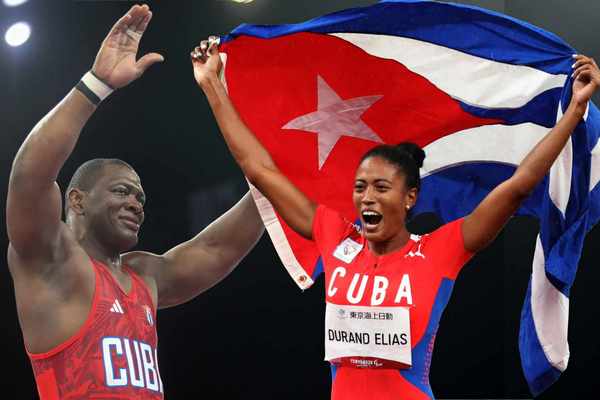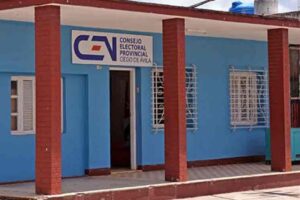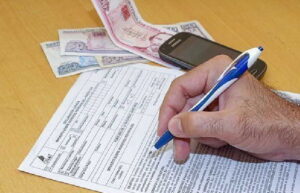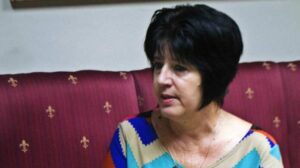Thousands of men and women have supported the role of a training organisation that defends its activity as a right of the people, based on the consecration that characterises Cuban educators.
Although its results left a mixture of joy and dissatisfaction, 2024 once again demonstrated the commitment that characterises those who contribute, from the grassroots to high performance, to the mission of the National Institute of Sports, Physical Education and Recreation (Inder), conceived by the historic leader of the Cuban revolution, Fidel Castro Ruz.
Willing not to give up in the face of difficulties, thousands of men and women proud to continue his work have upheld the role of a training organisation that defends its activity as a right of the people, consolidated in the dedication that characterises Cuban educators.
This, despite the inefficiencies already identified, others inherent to the distortions to be corrected to boost the economy, and limitations resulting from the intensified economic, commercial and financial blockade imposed by the government of the United States, which between March 2023 and February 2024 alone affected our sector to the tune of 3 million 405 110 USD.
In the midst of this complex panorama, once again multiple and demanding challenges were faced, assumed from the strengthening of alliances and the hierarchy of science and innovation, steps that during this period had important expressions developed and generalised from the Cuban Sports Research Centre, the Institute of Sports Medicine and the Manuel Fajardo University of Physical Culture and Sports Sciences.
In a year of Olympic and Paralympic Games, it is important to remember that the delegations attending these games returned home with the satisfaction of having shown dignity and attachment to the values of our sport, inspired by Fidel and grateful for the permanent encouragement of the people to whom we owe ourselves.
At the Olympic Games, in which we competed in 53 of the 329 events, two gold, one silver and six bronze medals placed Cuba in 32nd place by country, which meant that we did not meet our goal of a place in the top 20. But there was no triumphalism in that aspiration, which we always knew demanded an almost perfect response from our main candidates, only one of whom managed to be crowned.
The feat made the classic wrestler Mijaín López the only athlete to win the title in five consecutive editions of these events, ratifying him as the bearer of a greatness that goes far beyond his sporting merits, as was recognised when Army General Raúl Castro Ruz decorated him with the honorary title of Hero of the Republic of Cuba.
Our other champion under the five rings, the pugilist Erislandy Álvarez, shattered predictions to pay tribute from the side of the rising youngsters, a quarry to which it is often necessary to assign «accelerated» responsibilities in the face of the exodus fuelled by a disloyal subversive battle that turns its back on the precepts of Olympism.
Led by the immense runner Omara Durand, owner of three gold medals that fixed her historical total on these stages at 11, the delegation attending the Paralympic competition was made up of 22 competitors, including a guide, a figure that in addition to surpassing that achieved in the previous edition was enhanced by twice as many women as at that time.
Six gold, three silver and one bronze medal placed them 24th among nations, down from 33rd at Tokyo 2020, despite only competing in 28 of the 577 events. Debuts in parataekwondo and para-athletics, and never-before-seen victories in table tennis and para-powerlifting, were highlights.
Omara, distinguished as a Heroine of Labour in the ceremony led by Army General Raúl Castro Ruz, inspired Robiel Yankiel Sol who reedited his dominance in the long jump and the debutant champions Yunier Fernández (table paratriathlon) and Guillermo Varona (para-javelin), who completed the golden harvest.
Beyond the analyses already made, in both events, the consecration with which athletes and coaches overcame the difficulties to make the most of the preparation, backed by the political will associated with the role assigned to sport in our country, as a result of which no door was closed to the qualification process, stood out.
We worked in a differentiated manner at the level of sports and strategic figures, in accordance with the available resources, we consolidated medical-psychological care, anti-doping control and the study of opponents, and we competed with nobility, with delegations made up entirely of exponents of the Cuban sports system, who were examples of ethics and fair play.
Outside of the Olympic and Paralympic contexts, the palms go to the baseball5 and baseball teams for the blind, who won world championships, and to the weightlifter Marifélix Sarría and the racquetball player Cristian Menéndez, who gilded their names in the world’s youth events as winners of unprecedented prizes in their disciplines, and to the pitchers Raidel Martínez and Liván Moinelo, with brilliant performances in professional baseball in Japan.
At home, it is important to highlight the celebration of the National School Games, given the recovery of facilities and the general improvement of the conditions created for athletes and participants in general, in keeping with the symbolism of the 60th edition of an essential event, born of Fidel’s thinking.
The year 2024 will also end marked by performances far from what was expected, especially in sports of special importance, which are called to regain prominence, an issue to which special attention has been paid as part of the strategy approved for the current Olympic cycle, distinguished by its integrating character.
Although there were still dissatisfactions regarding the scope of some indicators of sport for all, we are motivated by the stability and progress recognised in relation to the Recreation and Use of Free Time project, which Inder runs at national level, and the concrete steps taken in the revitalisation of the sports teams as the centre of integrated community work.
Despite the lack of resources and technical strength, the articulation of efforts, together with activists, members of the sports clubs and other community actors, together with organisations and institutions such as Education, Culture, Health, and mass organisations, to name but a few, contributed to more recreational offers in neighbourhoods and communities, with special emphasis on what was achieved in the summer period.
The Cuban Sports System Law, the first of its kind in the country, is now being submitted for specialised consultation, the result of months of intense activity involving central state administration bodies and mass and social organisations. This is an exercise that demonstrates the democratic and participatory character that the revolutionary state assigns to the elaboration of legal norms, which, in addition to sport actors, will involve selected publics from these areas.
As a continuation of the work carried out since 2023, differentiated attention was paid to the business system, with emphasis on the generation of income and the role played by the Sociedad Mercantil Cubadeportes S.A., and the special social security system for active athletes and sports glories.
Also worthy of mention are the recruitment of athletes and specialists, the call for those who work abroad without the protection of our national federations and wish to represent Cuba, and the work in the field of international relations, based on the significance of sport as a conquest of the Revolution.
In addition, there is the control and better use of resources, prevention and internal control, the policy of cadres, the planning and recovery of facilities, the permanent link with our structures, and the tasks inherent to government programmes, including those related to the fight against cultural colonisation, gender violence, discrimination against women and manifestations of racism.
Attention to our glories grew, with a presence on numerous stages, including those dedicated to overcoming and other actions related to ideological political work, several events were organised that earned praise from their organisers, and the legal, computerisation and social communication areas continued to adapt to current demands.
In 2025, in addition to the steps designed for what will be the Law of the Cuban Sports System, we will be able to celebrate the 63rd anniversary of Inder and the 25th anniversary of the National Commission for the Care of Athletes, give an account before the National Assembly of People’s Power, and host the 2nd International Sports Fair and the 11th International Convention on Physical Activity and Sports, among other top-level events.
It will also be a year marked by the organisation of weekly sports events, which will reach all municipalities under the name of «Siempre Joven» (Always Young), as a sign of the will to multiply coordinated actions with other organisations and institutions, and on the international level we will take on the second edition of the Junior Pan American Games, in Asunción, and the sixth edition of the Junior Parapan American Games, assigned to Santiago de Chile, with a strategic view.
Both will become highly significant tests to check the state of a sporting reserve called to leave its mark in the current cycle, in which Cuba will seek to confirm itself as an Olympic and Paralympic power, raising the results in the different multidisciplinary games.




